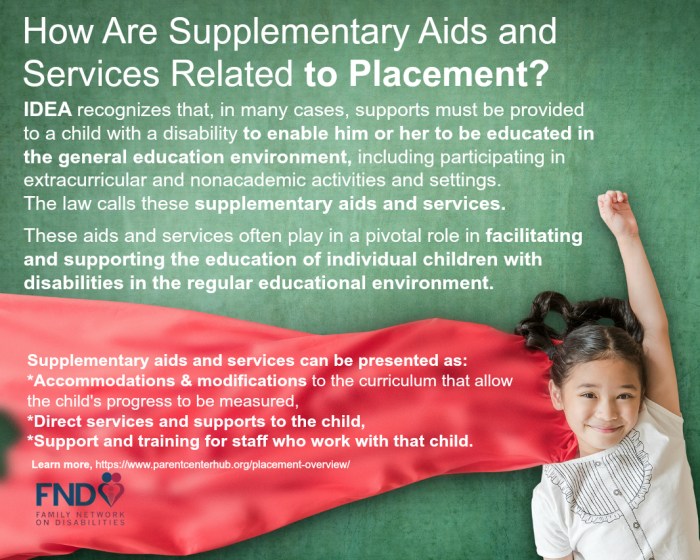The three prongs of special education provide a comprehensive framework for understanding and addressing the diverse needs of students with disabilities. This overview delves into the historical evolution, implementation, strengths, and weaknesses of each prong, exploring their impact on educational settings.
Each prong encompasses distinct assessment methods, eligibility criteria, and service delivery models, tailored to the unique challenges and abilities of students with disabilities. The collaborative efforts of educators, parents, and stakeholders are crucial in ensuring effective implementation and positive outcomes for all.
Three Prongs of Special Education: Overview

The three prongs of special education are a historical framework that categorizes disabilities and provides a basis for determining eligibility for special education services. These prongs include:
- Disabilities that impact intellectual development
- Disabilities that impact sensory, physical, or health impairments
- Disabilities that impact emotional or behavioral development
The three prongs have evolved over time to reflect changes in understanding of disabilities and the needs of students. In the early 20th century, special education services were primarily focused on students with intellectual disabilities. As the field of special education developed, it became clear that there were other types of disabilities that also required specialized services.
Today, the three prongs of special education provide a comprehensive framework for identifying and serving students with disabilities. Each prong has its own unique strengths and weaknesses, and the most appropriate prong for a particular student will depend on their individual needs.
Assessment and Eligibility
The assessment process for determining eligibility for special education services under each prong of special education typically involves a team of professionals, including teachers, psychologists, and other specialists.
For students with intellectual disabilities, the assessment process may include:
- Intelligence testing
- Academic achievement testing
- Adaptive behavior assessment
For students with sensory, physical, or health impairments, the assessment process may include:
- Medical evaluations
- Functional assessments
- Assistive technology assessments
For students with emotional or behavioral disabilities, the assessment process may include:
- Psychological evaluations
- Behavioral observations
- Social skills assessments
Once a student has been assessed, the team will determine whether they are eligible for special education services. The criteria for eligibility vary from state to state, but generally speaking, a student must have a disability that:
- Impacts their educational performance
- Requires specialized services
- Cannot be adequately addressed through general education
Individualized Education Programs (IEPs), Three prongs of special education
An Individualized Education Program (IEP) is a legal document that Artikels the special education services that a student will receive. The IEP is developed by a team of professionals, including the student’s parents, teachers, and other specialists.
The IEP must include the following information:
- A statement of the student’s present levels of academic achievement and functional performance
- A statement of the student’s annual goals
- A description of the special education and related services that the student will receive
- A statement of the amount of time that the student will receive special education and related services
- A statement of how the student’s progress will be measured and evaluated
The IEP is a living document that is reviewed and updated annually. It is important to note that the IEP is not a guarantee of success. However, it can provide a roadmap for providing the student with the services that they need to succeed.
FAQ Insights: Three Prongs Of Special Education
What are the three prongs of special education?
The three prongs of special education are: (1) assessment and eligibility, (2) individualized education programs (IEPs), and (3) service delivery models.
How are students assessed for eligibility under each prong?
Assessment methods vary depending on the prong. Under prong one, students are assessed using standardized tests and observations. Under prong two, students are assessed using a variety of methods, including psychoeducational evaluations, medical evaluations, and functional behavioral assessments. Under prong three, students are assessed using a variety of methods, including observations, interviews, and work samples.
What is an IEP?
An IEP is a written document that Artikels a student’s educational needs and the services that will be provided to meet those needs.

